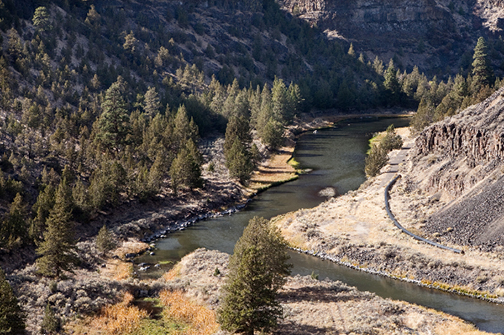This legislative session Representative Knute Buehler helped spearhead the first step in protecting the future of agriculture here in the Deschutes Basin. More often than not, agricultural security comes into conflict with environmental protections. Irrigators are faced with tough decisions about how to reliably deliver water to their customers and help create enough in-stream flow and habitat protection to protect various species of fish and frogs.
Nobody believes that a judge would turn off farmers’ water over a frog until it actually happens, short-changing both farmers and the environment.
However, here in the Deschutes Basin we are starting to prove up a different model. Both Three Sisters and Swalley Irrigation Districts have undergone significant system modernization projects that save farmers money, generate renewable electricity and add water back to our rivers and streams for habitat. These system modernization programs are often made possible because of our ability to develop responsible hydropower generation stations and sell that power back to the grid to power our community’s homes and businesses. We can then reinvest the revenue into system modernization projects that conserve a significant amount of water for fish and other critical wildlife. In the Three Sisters Irrigation District, upgrading the water delivery system and building a small hydro plant has not only saved farmers money, but has gotten water flowing in Whychus Creek which hasn’t happened since 1887.
In the case of Swalley Irrigation District, the district has dedicated back to the river over 33% of its water right in the past six years due to its piping projects; a huge conservation achievement by any measure. Fish-friendly renewable energy created by Swalley’s small hydro plant powers the equivalent of 300 local homes, which lead us one step closer to authentic greenhouse gas reductions and carbon-neutrality. We’re creating local jobs, generating and selling green energy, and thereby focusing unconventional revenue streams into conservation projects that help restore river flows AND make water deliveries to customers more efficient.
This session, the legislature passed a landmark law to increase the amount of renewable energy we will use to power Oregon. Representative Buehler worked diligently to make sure that as Oregon is making these investments, some of that money will be reinvested in creating jobs and generating economic growth right here at home in our own community. We commend him for his leadership and we look forward to continuing to work with Representative Buehler to maximize the full potential we have for community renewable energy and win-win water conservation projects throughout Oregon.
www.coid.org





